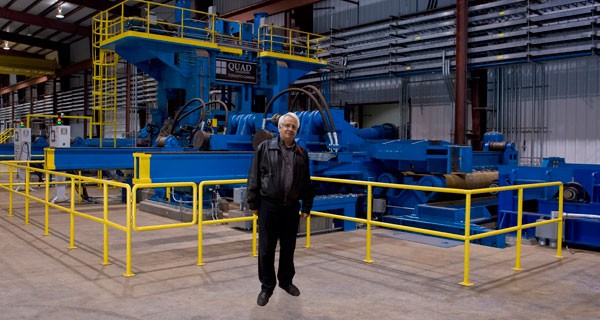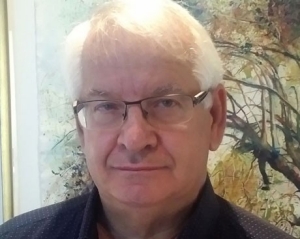In the years that followed, Pataki took a position with Montreal-based Dominion Engineering Works, which was owned by General Electric, before heading west in 1978. He worked for the Ontario-based Ferrco Engineering Ltd. until the economy began to sour.
He and three other colleagues teamed up in the spring of 1983 to start their own business. With four people on the team, the group decided to name themselves Quad Engineering — and their goal was quite simple: “Our goal was to survive, actually,” he says.
“It was a bad economic time. Jobs were very scarce. There was a very high unemployment rate. Ferrco Engineering was obviously going out of business. They couldn’t sustain a business which at one time employed as many as 300 people,” Pataki recounts.
“So, we decided we would go out independently and our goal at the time was to see if we could make a go at it. Everybody’s dream is to start their own business and that was one of mine.”
Machinery for metal mills
Quad Engineering’s specialty is custom designing and building the machinery used by metal mills, be it steel or more exotic metals like titanium. These machines operate in extremely hot environments as they melt, mold, twist and shape metals.
From mill management software to machines for the metals industry, Quad Engineering provides a full range of services.
In the years that followed, the company went from four people in an office to establishing its own facility in Toronto in 1998, with well over 30,000 square feet for its 100 or so employees at its peak. “We’re still in those same facilities today,” says Pataki.
Now 70 years old, he serves as the company’s chairman and CEO. Steel processing, he adds, has been the company’s mainstay. The company does millions of dollars in sales annually and exports worldwide.
Pataki still oversees many of the projects, he notes, but he has personally moved away from designing machines himself.
“We design, build and sell equipment, but we don’t manufacture,” he explains. “We outsource our manufacturing now. We design machinery from the ground up. It’s all custom designed to their specifications.”
Pataki says that the fact Sir George Williams offered night school enabled him to pursue an education in the field of machine design — otherwise he just wouldn’t have been able to go to school at all.
He was a draftsman in the aircraft industry when he started taking night classes and needed to work during the day to fund both his education and his budding marriage. Pataki and his wife had their daughter the year before he started school full-time, yet that didn’t stop him from graduating.
Pataki completed his final two years full-time and remembers many of his fellow night school students following a similar path. “Our classes tended to be very interesting with a mature mix of students,” he says.
He has recently toured Concordia’s facilities — a far cry from those during his Sir George Williams days — and met with officials from the Faculty of Engineering and Computer Science.
Pataki feels nostalgic about his time in school. As he moves toward the post-career phase of his life, he adds: “I am looking to get more connected with the Concordia community.”
#CUalumni


 Joseph Pataki used his Concordia engineering degree, earned over seven years of full- and part-time study, to help launch his career as co-founder of Quad Engineering in Toronto.
Joseph Pataki used his Concordia engineering degree, earned over seven years of full- and part-time study, to help launch his career as co-founder of Quad Engineering in Toronto.
 Joseph Pataki, BEng 74
Joseph Pataki, BEng 74